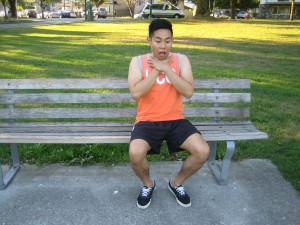Esophagitis refers to the inflammation of the esophagus that
damages its tissues. The esophagus is a muscular tube that plays a role in delivering food from the mouth to the esophagus.
Esophagitis is usually a painful condition that causes chest pain and difficulty swallowing.
Esophagitis is caused by exposure of the esophagus to stomach acids, oral medications, infections and allergies.
Treatment for esophagitis varies according o the underlying condition and seriousness of tissue damage. If the condition is left untreated, the condition may structurally change the esophagus and alter its functions as well.
Signs and symptoms of Esophagitis
Signs and symptoms of esophagitis commonly include:
- Difficulty swallowing
- Pain and discomfort while swallowing
- Chest pain – especially behind the breastbone while eating
- Nausea or vomiting
- Food gets stuck in the esophagus
- Abdominal pain
- Coughing
- Suppressed appetite
Young children, who cannot explain the pain or discomfort they are feeling verbally, may show signs of esophagitis such as difficulty feeding and reduced appetite.
Watch this short video clip from YouTube that explains about Eosinophilic Esophagitis (EoE or EE) Treatment Options
When to seek medical attention if Esophagitis persists
Signs and symptoms of esophagitis are often caused by many factors and conditions that are affecting your digestive system. Make sure you see your doctor if esophagitis:
- Persists for more than a few days
- Does not improve with over-the-counter antacids
- Signs and symptoms are too severe, thus making eating or feeding difficulty
- Signs and symptoms accompany symptoms of flue such a fever, headaches and muscle aches
- Signs and symptoms accompany shortness of breath, chest pain or other severe symptoms that are not triggered during or right after eating
Seek emergency medical attention if:
- You suffer from chest pain that persists for more than a few minutes
- You feel as if food is stuck in your throat or esophagus
- You have a history of heart disease and suffer from chest pain
First Aid Treatment for Esophagitis
Depending on the severity and type of esophagitis you are suffering from, you can control symptoms and avoid recurrence of symptoms with the following steps:
- Avoid allergens. Read labels in all food products thoroughly so you are sure you do not consume a product consisting of an ingredient you are allergic to. Make sure you are careful while eating out and be sure to ask what ingredients are used to make the dish
- Avoid food substances that may induce acid reflux. If you know which foods stimulate gastroesophageal reflux, avoid them. Some examples include caffeine, alcohol, tomatoes, citrus fruits and spicy foods. Also eating smaller regular meals instead of three large ones will help. Make sure you have your last meal three hours before bedtime.
- Take a pill with adequate amount of water. Make sure you never lie down half an hour before taking a pill
- Lose weight if you are overweight or obese. Consult your doctor or dietician to help guide you to maintain a healthy weight.
- Quit smoking if you are a smoker. You may need help from your doctor if you are trying to stop. Medications may help prevent withdrawal symptoms so be sure you get a prescription for that.

